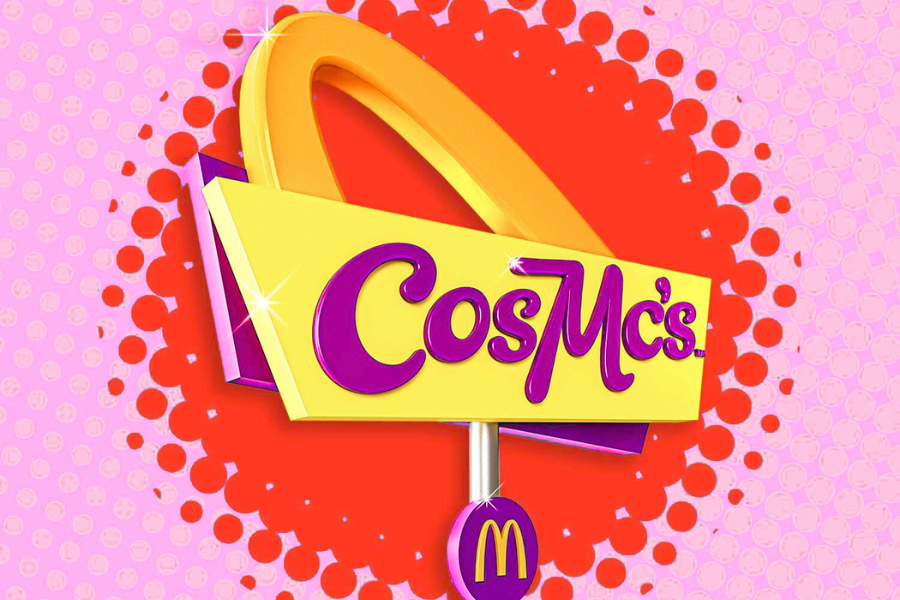
To protect the privacy of those involved in the following story, the names of those involved have been changed.
At the age of two, district employee Michael Smith was told he was going to die within a decade.
“The diagnosis was very bleak at the time,” Smith said. “The diagnosis was that both my brother and I were not supposed to live past ten.”
Smith was diagnosed with a disease called thalassemia when he was two. Thalassemia is a rare blood disorder, and is more often fatal than not. Smith’s mother realized that something was wrong with him because of his sudden weight loss and extreme jaundice.
“My brother had already been diagnosed upon birth with thalassemia so it didn’t take long for my mother to figure out what was happening,” Smith said. “There is a minor and a major type. Both me and my brother had the major type.”
When Smith was first diagnosed, thalassemia was not very well known in the United States, and, as a result, there was little doctors could do for the condition. The doctors saw what Smith and his brother were going through and prepared them and their mother for what was expected to be the inevitability of their passing.
“I was in the hospital about every two weeks,” Smith said. “Then I got sicker as time went by so I was pretty much living in the hospital from ages four to about ten.”
Blood transfusions helped, but that can lead to an overload of iron in the body leading to possible organ failure. That’s what happened with Smith. Doctors decided to keep Smith in the hospital, eventually removing his spleen and part of his liver.
All of the hospital stays made school especially challenging.
“I would go to school, regular school, but then I would have to go to the hospital for a few weeks and I would have to have a home tutor,” Smith said. “But I did make it through elementary school all the way in to sixth grade. Sixth grade I began to gradually begin doing a little bit better, physically.”
At this point, Smith had made it to age 13; something of a medical miracle to both his doctors and his mother. By living longer than most people with thalassemia, Smith became the poster child for the disease.
“There is actually a picture of me hooked up to all of these machines when I was a young boy lying in a hospital bed,” Smith said. “When you would enter the hospital there would be a poster of me and it was seriously like a 15’x20’ poster. They wanted to get the word out about thalassemia so that they could receive more blood donations but it was a little strange for me.”
Thought to have a fatal disease at the time, Smith and his brother were able to have some dreams come true courtesy of the Make-A-Wish Foundation.
“They flew us to Walt Disney World, the New York Mets adopted us for Christmas each year, and the New York Jets bought us a computer,” Smith said. “They took care of us, as we were very fatally ill at the time.”
When Smith was 13, he began treatment by way of a new procedure that would inject medicine subcutaneously (under the skin).
“We would have a little pump and it would have medicinal fluids. It would go over twelve hours, so about 6 in the evening my mother would give us the injection,” Smith said. “She would tape it to our skin, usually in our stomach or in our legs. We would sleep with it, and then after that we would go to school.”
The medicine, called Desferal, was keeping Smith and his brother alive by removing excess iron from their bodies.
“That was a really good thing, when that medicine came along,” Smith said. “It honestly saved our lives.”
Between the blood transfusions and the Desferal, Smith was living longer and longer, eventually achieving a family first.
“That really surprised my family, I was the first of anybody in my family to go to college,” Smith said. “And while I had to stay close to home for college to be nearby my family and hospitals, it was still a big change.”
Smith’s medical miracle continued with his conception of children. People with thalassemia aren’t supposed to be able to have children, but Smith has four children, completely naturally.
“God has been very good to me,” Smith said.
Smith’s brother wasn’t so lucky.
“My brother passed away a couple years ago. He died actually from AIDS,” Smith said. “He died because back in the early nineties, they weren’t testing the blood that they were using for blood transfusions. So when he was twenty years old, he had just turned twenty, we found out that he had HIV from a blood transfusion.”
Smith’s brother was already very sick and his body could not handle the HIV on top of thalassemia.
“Watching someone who has contracted HIV die is a little bit like watching someone with cancer pass, except there is absolutely nothing you can do to cure it,” Smith said. “There are treatments that can help you to live a bit longer, but there is nothing you can do to cure it.”
Smith’s brother fought HIV for three years, taking twenty or thirty pills approximately every five hours to keep him from developing AIDS. Unfortunately, all those pills only helped for a short while because after three years, Smith’s brother was diagnosed with AIDS.
“It was a very hard disease to watch,” Smith said. “He only lasted a couple of years with AIDS. And it all stemmed from a transfusion that the doctors did not screen.”
Fortunately for Smith, his children are completely healthy as they don’t have the disease. Smith’s wife does not have the trait so thalassemia genes were not passed on to their children.
“Whoever my children decide to marry though, they are going to have to be very careful about conceiving a child with thalassemia,” Smith said. “The good thing though is that the disease is a lot more well-known now, and they have more technology to help patients with the disease.”
While Smith’s past is a tale of near tragedy, his future looks bright.
“As far as my fate goes, I take it one day at a time,” Smith said. “I am on medication for the rest of my life, and I’ll be doing transfusions until they find a medicine to reproduce my red blood cells, but I thank God because they now screen the blood so well, there is almost no possibility of me contracting a blood borne infection such as HIV.”
These days Smith is fairly healthy compared to his condition as a youth.
“I don’t have the aches and pains that I used to, and I truly do not look that sick compared to other thalassemia survivors,” Smith said. “My biggest symptom today is simply fatigue. With this disease, my red blood cells do not reproduce and die very quickly. And red blood cells carry oxygen. So when I get transfused, in the beginning I have all of these new red blood cells. My skin turns red and I feel normal, yet over time the red blood cells begin to diminish. So with less oxygen being carried to my heart and lungs, it causes extreme fatigue.”
Even though thalassemia has impacted Smith’s life negatively, he is still able to remain optimistic.
“This disease hasn’t defined me; it hasn’t limited me or stopped me from becoming or doing what I want to do. I served as a Missions Pastor for 10 years, traveled to 34 different countries serving in disaster relief and humanitarian aid,” Smith said. “I am constantly stretching myself, doing hard things and achieving those special milestones. I will not allow fatigue or a 5’7” body with a small imperfection keep me from becoming the person God designed me to be. The verse Jeremiah 29:11 says ‘I know the plans I have for you says the Lord, they are plans for good and not for disaster, to give you a future and a hope.’ My future is known and planned by God so why should I worry or do anything different than a healthy person?”
Smith has fought a battle his entire life, a battle which seemed to have no hope for survival. Now, he’s just thankful for everything.
“I am alive, I am breathing, and I have a family who loves me,” Smith said. “What could be more important than that?”















